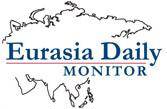The central part of Medvedev's July "offensive" was setting a new format for Russia-U.S. relations at the Moscow summit, and he was obviously pleased that President Barack Obama took him very seriously and had only a short working breakfast with Prime Minister Vladimir Putin.
Some of these setbacks might be attributed to Medvedev's lack of experience in foreign policy and to the weakness of his position as a co-ruler hand-picked by Putin who is obviously not going to grant him all the control that a president is entitled to. It is this inescapable decline that determines Moscow's clumsiness and nervousness in the international arena, and that is exactly why the Kremlin is so upset with Biden's precise -even if not entirely politically correct- diagnosis of Russia's weakness, which inevitably involves a whole range of consequences from arms control to conflict with Georgia (Ezhednevny Zhurnal, July 27). Medvedev's key foreign policy aid Sergei Prihodko even expressed doubt about Obama's control over setting U.S. foreign policy guidelines, also reminding him about American responsibility for triggering the global financial crisis (Kommersant, July 27). Apparently, Putin's team, on which Medvedev still heavily relies, assumed that "reset" implied the readiness of the new U.S. administration to correct the mistakes of the George W. Bush years - but never thought about the need for Moscow to cover any part of the road to "friendly and mutually beneficial" relations with the U.S. The truth is that reckoning with reality is beyond Medvedev's freedom of maneuver as defined by his senior partner - who is not simply stuck with one foot in the "old ways" but is probably incompatible with the new ways leading away from curtailed democracy and corrupt paternalism.







